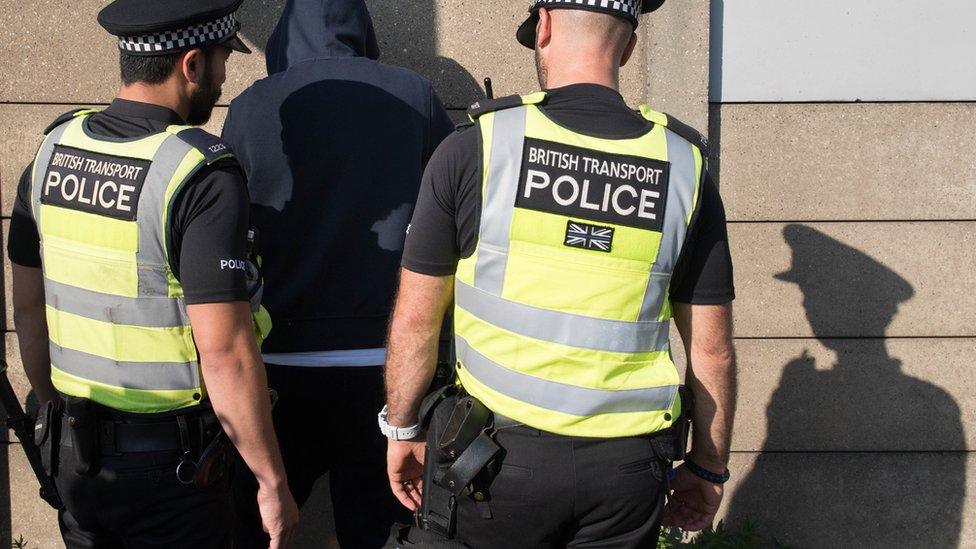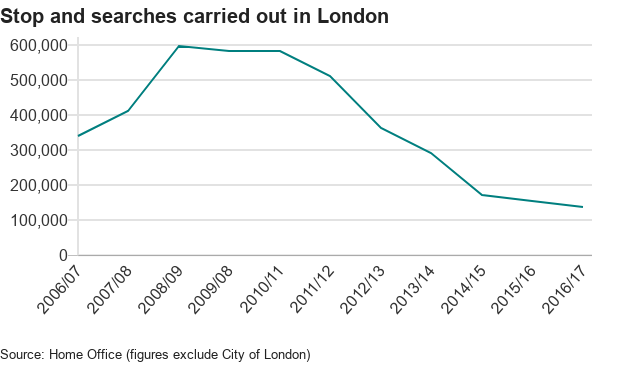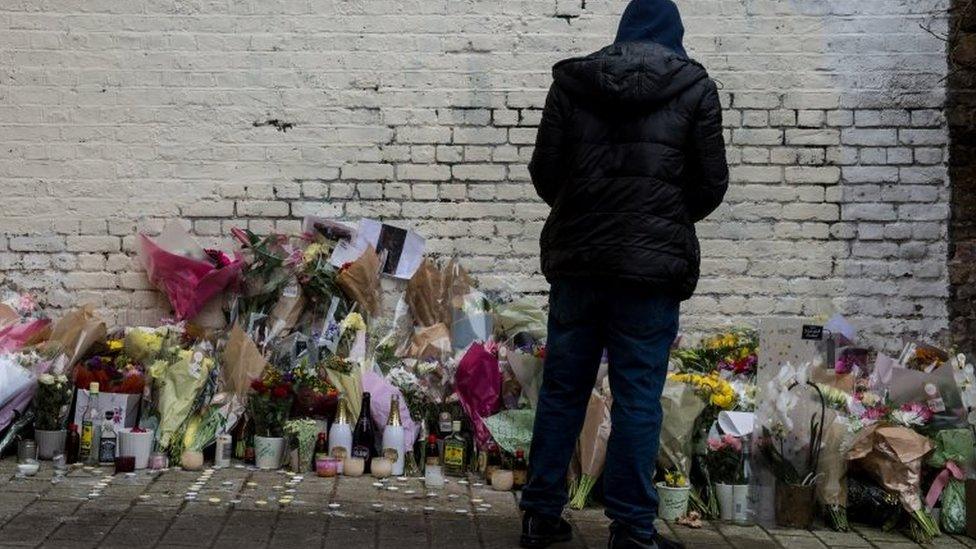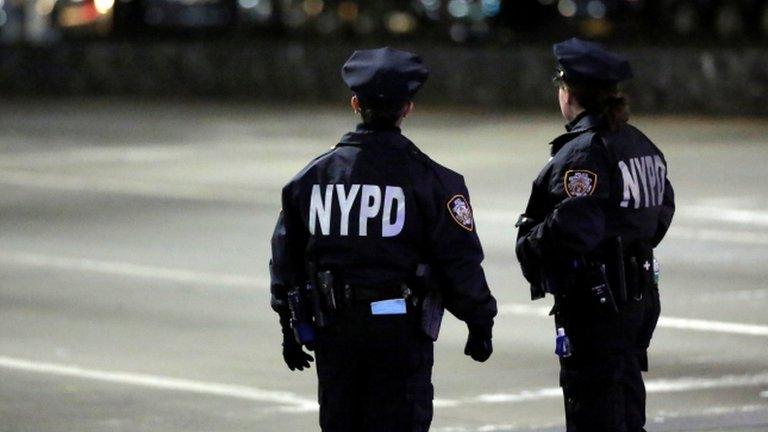Report calls for increased use of stop and search to tackle London violence
- Published

The report calls for a zero-tolerance approach to criminals
Police should increase the use of stop and search to curb a "toxic cycle of violence" in London, a think tank says.
A report by the Centre for Social Justice (CSJ), external, co-founded by Iain Duncan Smith, comes amid a surge in violent deaths in the capital.
It calls for a zero-tolerance approach to criminals, which has been successful in Glasgow and the US.
However, a former officer warned heavy-handed stop and search can create a divide between the public and police.
The report said: "If London implemented a Safer Streets GVI (Group Violence Intervention) and achieved comparable reductions to those seen in Glasgow, Boston, and Cincinnati, it could save the lives of thousands of young Londoners over the next decade."
On BBC Radio 4's Today programme, ex-superintendent Leroy Logan told Mr Duncan Smith: "Overemphasis on gangs has hijacked this issue and as a result you're not dealing with the centre of it - which is young people suffering from adverse childhood experiences.
"Don't try and scare them because they're already in fear. This overemphasis on gangs is really a smokescreen."
In the UK, the police codes outline that officers must have reasonable grounds for a stop and search, and should not be biased towards a particular person or group.
Figures quoted in the 'It Can Be Stopped' report said more than three-quarters of those asked supported police using stop and search powers, while 70% backed the idea of police using the powers even when there is no "reasonable suspicion" of criminality.
The report also found a gun gets fired every 27 hours in London, but suggested the true figure could be as little as every six hours as not all cases are reported to police.
Sadiq Khan: "When stop and search is used properly, it's an invaluable tool to the police."
It added the number of stop and searches in London had fallen "significantly" in the last decade, from around 600,000 a year in 2010/11 to around 125,000 in 2017/18.
This form of proactive policing has "been under sustained attack for years", according to the think tank, with the report urging greater scepticism about claims of racial disparity over those stopped and searched.
There have been over 90 violent deaths in the capital so far this year.

Mr Duncan Smith said: "There are two essential elements to the report - the first is that policing alone does not reduce gangs, it has to come hand in hand with local activity - getting young kids out of the gangs and into work and education.
"The report recommends that in the areas where this gang activity is highest, we need to bring in a process, which actually puts a safer streets zone into place which intelligence-led policing can stop and search those who may be carrying knives."
Metropolitan Police Commissioner Cressida Dick admitted the Met was "stretched" but said her officers were doing "everything they can" to reduce street crime.
- Published7 April 2018

- Published4 April 2018
